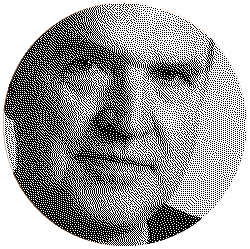When I started writing I found myself dealing with subjects about which I was not knowledgable: medieval history, economics, social mores. My habit was to go to the university library, find a relevant book in the card catalog, then go to that section of the stacks where I could leaf through many related books—old and new—on the same subject. I concentrated on reputable university and trade publishers, at least to start with. When I found a book that struck me as particularly apposite, I could make use of the writer’s reference notes and bibliography to dig deeper.
Of course the library had curated its collection, an advantage I no longer have with Google, which is more like a huge information scrap heap, some useful, most not. Google Books includes manuals, government directories, obscure indie publisher. Yet once in a while I can still find gold. But I still miss wandering in the stacks.
Which brings me to ChatGPT. I hear many enthusiasts saying that it is a wonderful replacement for Google. The parlor tricks aside—a sportscast in the style of Jane Austen—for me the big drawback in the lack of sources. Information is presented in such an authoritative voice that it is easy to believe. But is it believable? I recently tested ChatGPT by asking about the architect Paul Philippe Cret. It answered with a largely accurate biography, but opined that Cret had collaborated with Kahn and Wright. When I pointed out that this was not true, the bot agreed and apologized for the error. But what if I had not known? I asked about the source of the error but did not get a response—the bot keeps that card close to its chest. We had an extended conversation on the question of why Cret, who had built such important national landmarks as the Fed headquarters in DC and the Valley Forge arch, was considered less important than Wright and Mies, who were best known for weekend houses. I concluded that ChatGPT had pretty conventional modernist opinions about architecture, i.e. the social role of a building counts for little in its “greatness,” innovation is all, light and space are the key elements of a building, and so on. I pointed this out but the bot answered huffily that “I have no opinions.” I am not convinced.



Mies is best known for weekend houses?? Or is that what Chat said?
No, that was me referring to Fallingwater and Farnsworth.